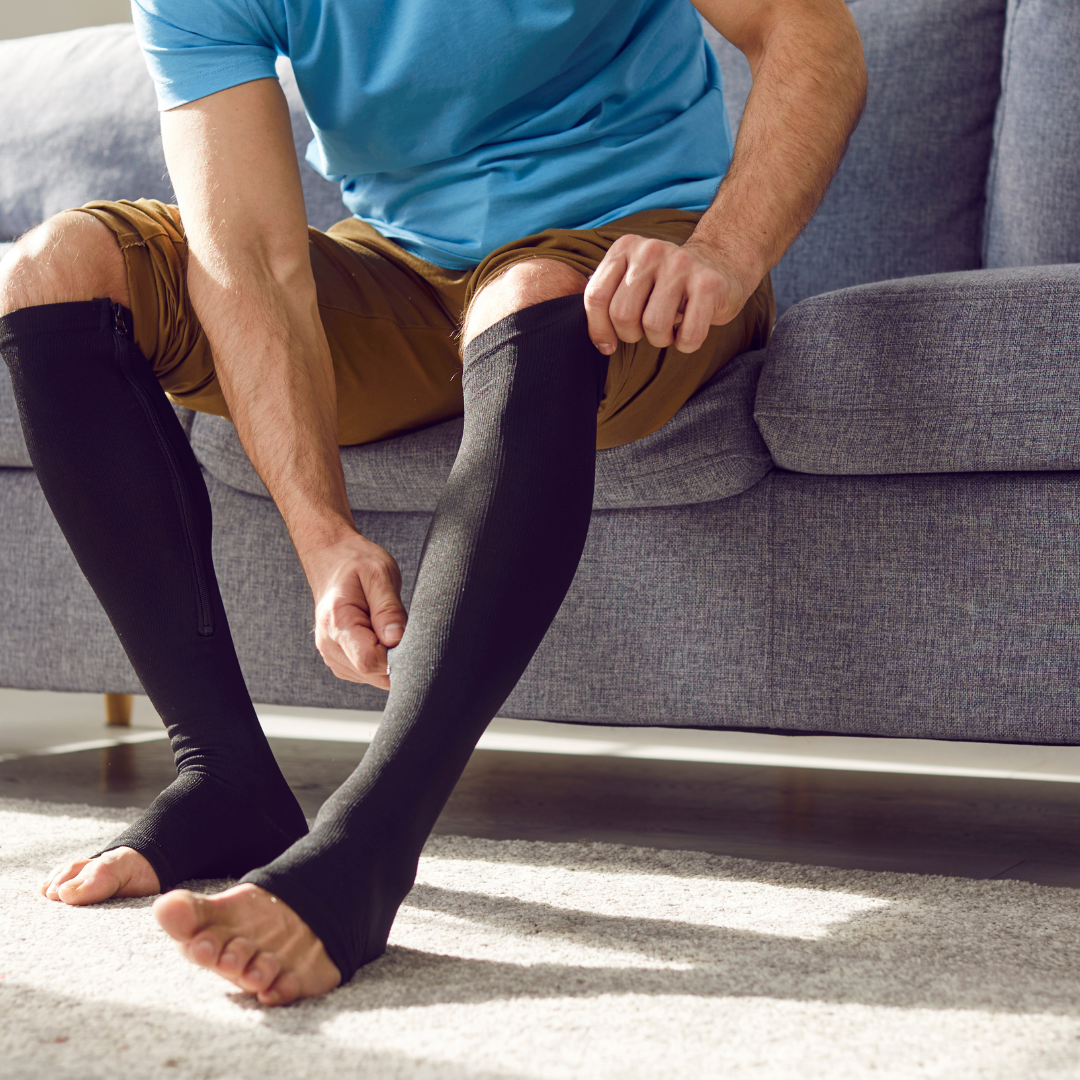
Compression Stockings
Compression therapy is a fundamental strategy in the treatment of venous disease. Despite recent technological advancements in leg vein treatment, compression therapy remains a simple and effective treatment, frequently used as an adjunct when other treatments are employed.
*We strongly recommend that you contact your insurance company directly to verify your coverage in advance.
Scroll down for Compression Stockings FAQ.
Compression Stockings FAQ
-
Compression stockings are specially designed elastic garments that apply pressure to your legs. They work by improving blood flow in the legs and reducing the pooling of blood in the veins, which is common in venous reflux disease.
-
Compression stockings are typically recommended for individuals diagnosed with venous reflux disease by their healthcare provider. They are often prescribed for people with symptoms like leg swelling, pain, and varicose veins.
-
Yes, there are various types of compression stockings available, ranging from mild to high compression levels. Your healthcare provider will determine the appropriate type and pressure level based on your condition.
-
It's crucial to get the correct size to ensure they provide effective compression. Your healthcare provider or a certified fitter can measure your legs to determine the right size and fit for you.
-
Typically, you should wear compression stockings daily, especially during waking hours.
-
In most cases, you should remove compression stockings at night to allow your skin to breathe and prevent any skin irritation.
-
While compression stockings are generally safe, they may not be suitable for everyone. Potential side effects can include skin irritation or discomfort.
-
The duration of wear varies from person to person and depends on the severity of your condition.
-
Yes, in most cases, you can engage in physical activities while wearing compression stockings. In fact, they can help reduce symptoms during exercise by promoting better blood flow.
-
You can find some compression stockings over the counter, but it's advisable to consult your healthcare provider for a proper evaluation and prescription to ensure you get the right type and compression level for your condition.
-
*We strongly recommend that you contact your insurance company directly to verify your coverage in advance.
